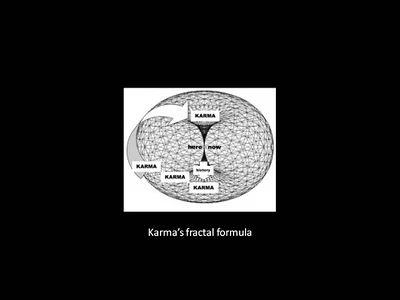Transpersonal psychology deals with mystical and spiritual experiences of the human psyche. "Transpersonal memory" is defined as memories that are shared at a cultural level, rather than a personal level. Transpersonal memories reveal themselves in many ways, through societal archetypes and archetypal dreams, through sub-conscious assumptions, stereotypes, and expectations, and through strange occurances such as the "100th Monkey" phenomenon.
Jung referred to this transpersonal memory as the collective unconscious. Here Jung is quoted in Wikipedia: “My thesis then, is as follows: in addition to our immediate consciousness . . . there exists a second psychic system of a collective, universal, and impersonal nature which is identical in all individuals. This collective unconscious does not develop individually but is inherited. It consists of pre-existent forms, the archetypes, which can only become conscious secondarily and which give definite form to certain psychic contents.” [C. G. Jung, The Archetypes and the Collective Unconscious (London 1996) p. 43
Again from Wikipedia: "Jung also made reference to contents of this category of the unconscious psyche as being similar to Levy-Bruhl's use of collective representations or "représentations collectives," Mythological "motifs," Hubert and Mauss's "categories of the imagination," and Adolf Bastian's "primordial thoughts."
The Simple Explanation refers to these collective memories as culturally shared "memes" and "meme chords." A person can be defined by the memes they cling to. To a large extent, one's memes shape one's personality.
Biologist Rupert Sheldrake has written extensively about, and staked his professional reputation upon, a scientifically controversial process called "morphogenetic fields." How does an oak tree develop from an acorn? By information carried in the morphogenetic field surrounding the acorn. Sheldrake explains that morphogenetic fields are to life forms what quantum probability clouds are to sub-atomic particles, carrying the information that gives rise to particular biological manifestations of form.
The Simple Explanation would site these morphogenetic fields at the zero-point field at the center of the toroid, part of the metaversal information streaming into our universe through our universal unit of consciousness, tempered by the organism's karmic record and acquired memes. In the case of the acorn and the oak tree, the morphogenetic field of the oak tree provides the genetic blueprint, while the mama tree's karma and memes provide the individualized epigenetic pattern that tells which genes to turn on and off. What karma can a tree have? Its karma is the record of its life--nutrients, history of water availability, pest attacks, and so on. What memes can a tree hold? "The sun feels good on my leaves; must follow the sun."
Jung referred to this transpersonal memory as the collective unconscious. Here Jung is quoted in Wikipedia: “My thesis then, is as follows: in addition to our immediate consciousness . . . there exists a second psychic system of a collective, universal, and impersonal nature which is identical in all individuals. This collective unconscious does not develop individually but is inherited. It consists of pre-existent forms, the archetypes, which can only become conscious secondarily and which give definite form to certain psychic contents.” [C. G. Jung, The Archetypes and the Collective Unconscious (London 1996) p. 43
Again from Wikipedia: "Jung also made reference to contents of this category of the unconscious psyche as being similar to Levy-Bruhl's use of collective representations or "représentations collectives," Mythological "motifs," Hubert and Mauss's "categories of the imagination," and Adolf Bastian's "primordial thoughts."
The Simple Explanation refers to these collective memories as culturally shared "memes" and "meme chords." A person can be defined by the memes they cling to. To a large extent, one's memes shape one's personality.
Biologist Rupert Sheldrake has written extensively about, and staked his professional reputation upon, a scientifically controversial process called "morphogenetic fields." How does an oak tree develop from an acorn? By information carried in the morphogenetic field surrounding the acorn. Sheldrake explains that morphogenetic fields are to life forms what quantum probability clouds are to sub-atomic particles, carrying the information that gives rise to particular biological manifestations of form.
The Simple Explanation would site these morphogenetic fields at the zero-point field at the center of the toroid, part of the metaversal information streaming into our universe through our universal unit of consciousness, tempered by the organism's karmic record and acquired memes. In the case of the acorn and the oak tree, the morphogenetic field of the oak tree provides the genetic blueprint, while the mama tree's karma and memes provide the individualized epigenetic pattern that tells which genes to turn on and off. What karma can a tree have? Its karma is the record of its life--nutrients, history of water availability, pest attacks, and so on. What memes can a tree hold? "The sun feels good on my leaves; must follow the sun."
In an article published in the journal In Context, Robert Gilman ties together morphogenetic fields and personal memories by describing how the memories generated by our brains "are not locked in your brain, but are available throughout all space and all future time!" through the process of morphogenetic resonance. Gilman claims that not only is our biological form influenced by these fields, but our behavior as well, as shared memories influence behavior.
The Simple Explanation agrees with Sheldrake and Gilman that personal memories do not reside in the meat portion of our brains, but are vibratory patterns held in the zero-point field, and accessed through our minds. Furthermore, apparently personal memes are actually harmonics of collective memes and are shared in common with all who hold onto that meme. The particular shadings of one person's meme differs slightly from the next person's, as is to be expected among fractal replications of a single phenomenon, but all who hold it recognize its pattern and are affected by it.











































